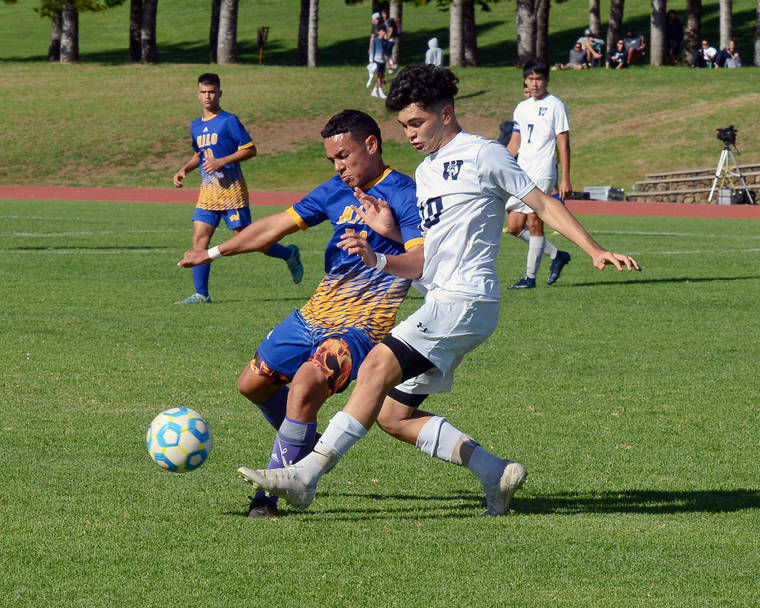For the Hawaii Prep girls Division II soccer dynasty, every one of the past seven years has been “the year.”
Most programs aren’t as dominant, so it made it all the tougher on the coaches who had designs on 2021 being “the year.” It’s enough to make Waiakea’s David Urakami ready to run it back one more time.
The math was not hard. The Warriors ended a 14-year BIIF boys title drought last season then reached the HHSAA D-I semifinals for the first time in 21 years and were set to return a strong core of seniors — the likes of Riley Tamanaha, Kyson Yamashiro, Colby Kerr, Javier Cuevas, Chase Kotomori and Kadin Hatakenaka.
“We definitely would have had a great senior class and a strong team,” Urakami said.
By the time the state soccer championships and BIIF seasons were canceled over the span of six days earlier this month amid the pandemic, any shock value had long dissipated.
But that didn’t make the decisions any easier to swallow.
“Heartbroken,” Urakami said, “not so much for me, but especially for my seniors and their families.”
“Devastating,” Hilo boys coach George Ichimaru said. “A lot of these kids love playing soccer, and it’s a great thing for their academics and their well-being.”
Maintaining that well-being as it relates to getting players back on the pitch sooner rather than later outside the BIIF dynamic is the goal of coaches and administrators going forward.
Urakami said he plans to try to reach out to the American Youth Soccer Organization to see if matches or scrimmages could be held this school year. The dynamic could be similar to the annual Volcano International Soccer Tournament, an AYSO event annually held in the summer that also includes club teams. No squads in the tournament hold a formal affiliation to a high school.
As for clubs, the Hawaii Youth Soccer Association is set to begin its season in February, “if all goes well,” Big Island HYSA president Jonathan Walsh said.
The older age groups, 19-and-under and 16-and-under, are scheduled to play an extended spring season through May, while three younger divisions will start off with pre-qualifying tournaments.
After the coronavirus pandemic set in, HYSA was one of the first organized sports leagues to restart in July, but it eventually shut down during the fall when COVID-19 cases began to spike.
Under Hawaii County guidelines, up to 50 participants are allowed for noncontact sports such as soccer. For contact sports, the limit is 25.
Beyond his organization, Walsh is hopeful that the clubs, AYSO and high school coaches can work together to map out some form of organized competition this school year.
“I don’t think anyone is going to be territorial,” he said. “Whatever it takes, everyone’s goal is just to get the kids playing again.”
And when they do, Ichimaru, also a club coach with Rush, figures players will take to the field with a renewed spirit and appreciation, realizing, “It can’t just be taken for granted.”
The pandemic stalled Ka Makani’s opportunity to win an eighth consecutive girls state title and Waiakea’s chance to win its first, but it also caused Urakami to reconsider his immediate future. Previously, he’d targeted 2021 as his final season at the helm of the Warriors.
“Now, maybe one more year,” said Urakami, one of the longest-tenured coaches in the league, taking over in 2009.
It’s too soon to tell if 2022 will be “the year.”

